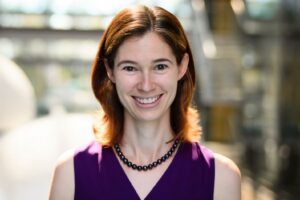
Abigail Doyle
Chemistry & Biochemistry
Saul Winstein Chair of Organic Chemistry
Prof. Doyle joined the department as a Full Professor effective July 1, 2021. Her office and laboratory are located in the Molecular Science Building.
Born in Princeton, New Jersey, Prof. Doyle received her A.B. and A.M. summa cum laude in Chemistry and Chemical Biology from Harvard University in 2002. As an undergraduate, she investigated iron-catalyzed epoxidations of alkenes in collaboration with Dr. Christina White. She began her graduate studies at Stanford University working with Professor Justin Du Bois. In 2003, she transferred to Harvard University and joined the laboratory of Professor Eric Jacobsen. Her graduate research included the discovery of a transition metal-catalyzed enantioselective alkylation of tributyltin enolates with alkyl halides and the development of a thiourea catalyst for enantioselective nucleophilic additions to prochiral oxocarbenium ions. Prof. Doyle began as an Assistant Professor in the Department of Chemistry at Princeton University in July 2008. She was promoted to Associate Professor in 2013 and was the A. Barton Hepburn Professor of Chemistry prior to coming to UCLA.
Prof. Doyle’s awards and honors include American Chemical Society Fellow (2020), RSC Fluorine Award (2019), 15th Hirata Prize (2019), BMS Unrestricted Grant in Synthetic Organic Chemistry (2016), Phi Lambda Upsilon National Fresenius Award (2014), Presidential Early Career Award for Scientists and Engineers (2014), Novartis Chemistry Lectureship (2014/2015), Bayer Excellence in Science Award (2013), Arthur C. Cope Scholar Award (2013), Camille-Dreyfus Teacher-Scholar Award (2013), Amgen Young Investigator Award (2012), Alfred P. Sloan Foundation Fellowship (2012) and NSF CAREER Award (2012-2017).
We also welcome to UCLA Prof. Doyle’s nine lab members who have joined her from Princeton. They are postdoctoral scholars Dr. Makeda Tekle-Smith and Dr. Garrison Kinney; fifth-year graduate students Stavros Kariofillis, Sam Newman-Stonebraker, Will Lau, and Stephen Ting; third-year graduate students Wendy Williams and Shivaani Gandhi, and second-year graduate student Jason Wang.
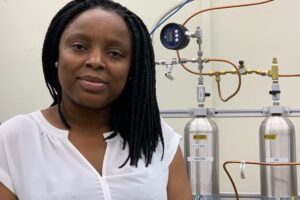
Alvine Kamaha
Physics & Astronomy
Inaugural Terasaki Endowed Chair in Physical Sciences
Dr. Kamaha is a dark matter physicist who did her undergraduate work and earned a master’s degree in theoretical physics from the University of Douala in her native Cameroon, in western Africa. She received a second master’s degree from the Abdus Salam International Centre for Theoretical Physics (ICTP) in Trieste, Italy. She then pivoted to experimental physics, earning her PhD in astroparticle physics at Queen’s University in Kingston, Ontario, Canada, and staying on for a postdoc. In 2018 she moved to the University at Albany in New York for another postdoc.
Alvine Kamaha will join the department’s faculty in November 2021. She was recently a postdoctoral research fellow in the physics department of the University at Albany, State University of New York, where she worked on the LUX-ZEPLIN (LZ) experiment, the flagship direct-detection dark matter project in the U.S. On LZ, Dr. Kamaha served as coordinator for calibrations and operations. Dr. Kamaha earned her Ph.D. at Queen’s University in Canada and stayed there for her first postdoc before moving to Albany, SUNY. Dr. Kamaha has a versatile background in physics, earning Masters degrees in theoretical atomic physics and neutrino physics before switching to experimental astroparticle physics for her Ph.D. and postdoctoral work. Her research interests currently are in astroparticle physics, with an emphasis on dark matter and neutrino physics. She will continue in her leading role on the LZ project and has plans for the development of future dark matter experiments using novel detection techniques.
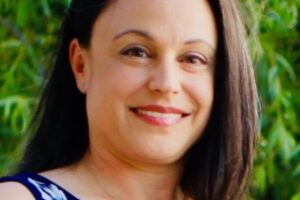
Courtney Shelly
Statistics / Mathematics
Social Justice/Data Science (SJDS) Assistant Adjunct Professor
A new joint appointment in the Departments of Mathematics and Statistics, supported by the Division of Physical Sciences, has been created to focus on a social-justice issue from a data-science perspective. Dr. Courtney Shelley has been hired as the Social Justice/Data Science (SJDS) Assistant Adjunct Professor and will teach two courses in mathematics each year. The position has a dual-mentor system whereby the SJDS professor has a data-science mentor in either mathematics or statistics and a second mentor who is a scholar of social justice from another campus unit.
“Dr. Shelley’s data-science mentor will be Dr. Chad Hazlett, Assistant Professor of Statistics and Political Science. Her social justice mentor will be Dr. Onyebuchi Arah, Professor of Epidemiology. Dr. Shelley will collaborate with them on identifying causal drivers of spatio-temporal patterns and social inequities in COVID-19 morbidity and mortality. These issues impact the most vulnerable members of our society, including racial and ethnic minority groups. These topics are both pressing and important for social-justice,” says Department of Statistics Professor Mark Handcock.
Dr. Shelley received her BS from UCLA, majoring in Theoretical Biology with special interests in disease modeling. She then received her PhD in Epidemiology from the University of California Davis in 2019, where she focused on childhood vaccination coverage of US children and the potential for vaccine preventable disease outbreaks. She is now a second-year postdoc at Los Alamos National Laboratory where she recently won the 2020 Distinguished Postdoc Award for her extensive work in COVID-19 modeling and forecasting. This work has supported the White House, the Congressional Budget Office, the Governor of New Mexico, and the Nevada State Department of Health. In addition to COVID-related work, she also works with a multidisciplinary team of psychiatrists, data analysists, and advocates to reduce suicide outcomes in US Veterans.
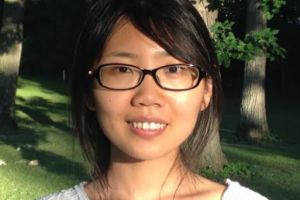
Qianhui Shi
Physics & Astronomy
Qianhui Shi will also join the department’s faculty in November 2021. Just prior to that she was a postdoctoral researcher at Columbia University. Her research efforts have focused on electronic properties in low dimension systems, with her Ph.D. studies on conventional 2D systems realized in quantum wells, and postdoc work on van der Waals 2D materials. Examples of her past research subjects include exotic quantum Hall states, exciton condensates, stripe phases, and non-equilibrium transport phenomena. Professor Shi is interested in realizing and probing exotic quantum phases of matter exploiting van der Waals material as building blocks. Professor Shi earned her Ph.D. in physics at the University of Minnesota in 2017.
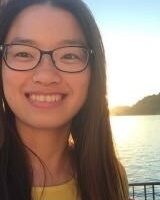
Hong Wang
Mathematics
Dr. Wang is a pure Mathematician who earned her Ph.D. at MIT and was a postdoc at the Institute for Advanced Study and Princeton.
Tags: Faculty News